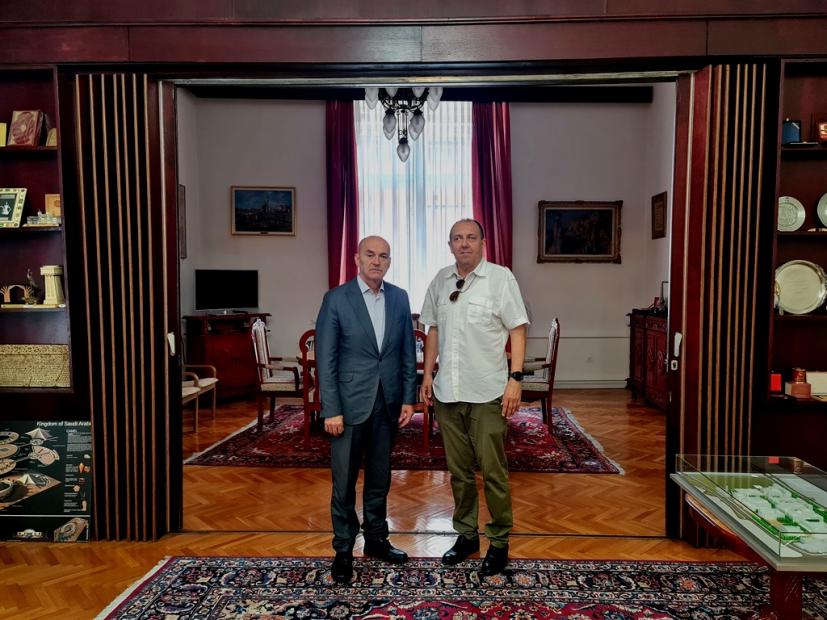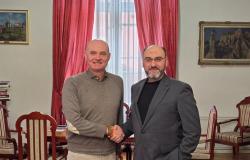President of the CPWP 's Executive Board prof. dr. Nevad Kahteran visited the University of Sarajevo

On 4th July 2024 Rector of University of Sarajevo, Professor Rifat Šrijelj, with newly elected Rector of UNSA for the period 2024-2028, Professor Tarik Zaimović, held the first meeting with new president of the CPWP's Executive Board (1 July 2024 - 30 June 2027), Professor Nevad Kahteran from the Faculty of Philosophy UNSA.
At the meeting, they expressed the importance of comparative and transcultural philosophy which becomes particularly poignant when considering the region's past of ethnic tensions and conflicts emphasizing on the shared intellectual legacy among different BiH communities which serves as a reminder that, despite historical divisions, there exists a foundation for dialogue and mutual respect grounded in the pursuit of knowledge and wisdom. They highlighted that this aspect of Kahteran's endeavor and his International Society CPWP (see website: wwwcpwponline.org), which is established in the U.S., is crucial for understanding the role of philosophy in Bosnia and Herzegovina in healing and rebuilding societies fractured by conflict, as well as that constructive engagement of distinct approaches and resources from different philosophical traditions, including the suitable role that comparative and transcultural philosophy toward world philosophy can play via its relevant methodological and theoretic resources concerning how to enhance dialogue, mutual understanding, and complementary engagement between contraries on various issues, in a more widespread social setting, for the sake of contributing to the contemporary development of society worldwide, especially because it can be of crucial importance not only in Bosnia and Herzegovina but wider region of the Balkans and the EU. Taking into account that transcultural philosophy transcends local and regional boundaries, offering valuable insights into the process of cultural and intellectual exchange on a global scale, and Bosnia and Herzegovina than becomes a microcosm of the global philosophical endeavor to bridge cultures and intellectual traditions including much needed the ability to navigate, synthesize and bridge different cultural and philosophical traditions in our increasingly interconnected world.
In today's world, characterized by globalization and pervasive conflicts, they underscored the relevance of transcultural dialogue and transcultural competences as an everyday practice among our students at all three Bologna circles.








